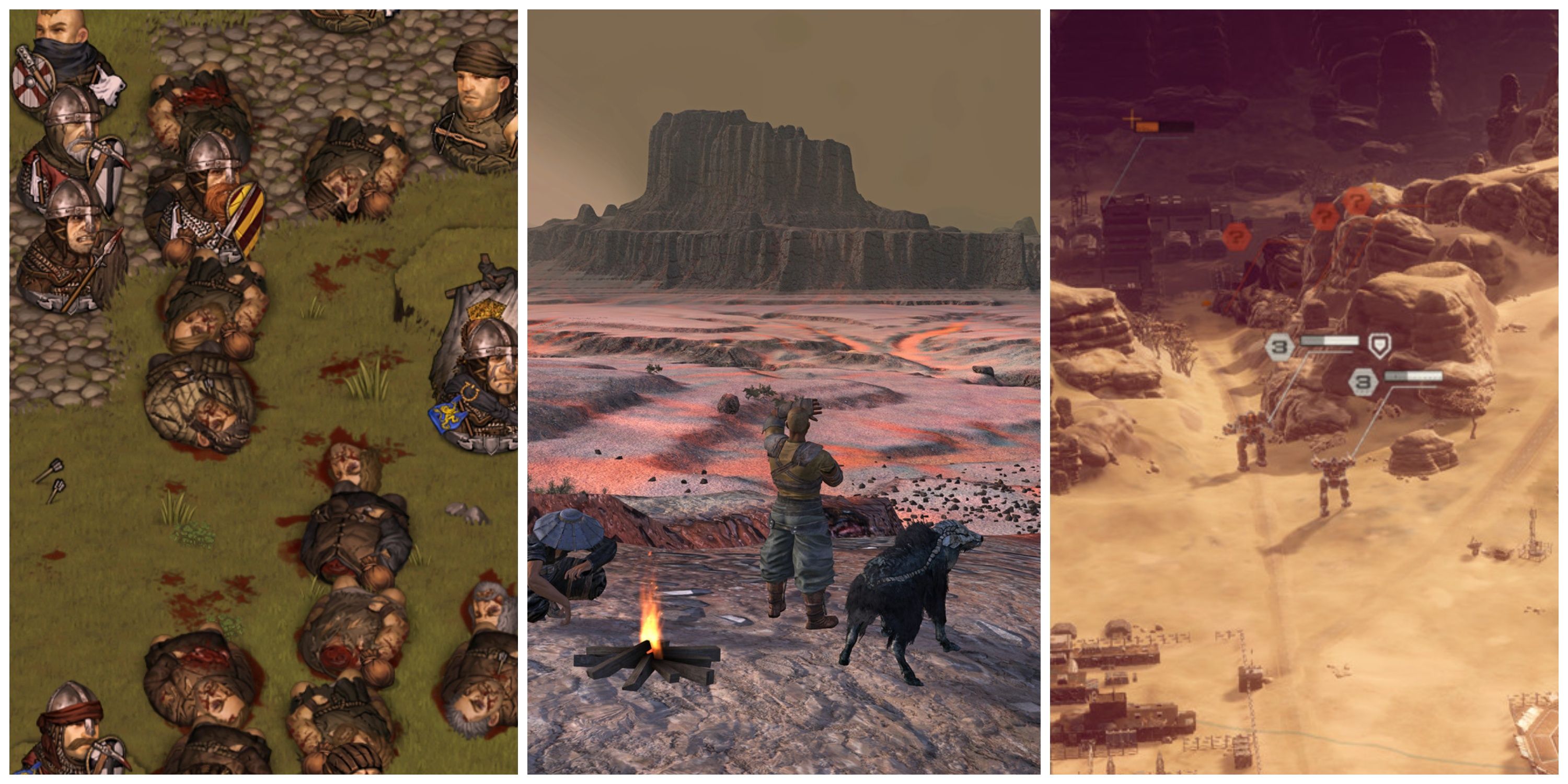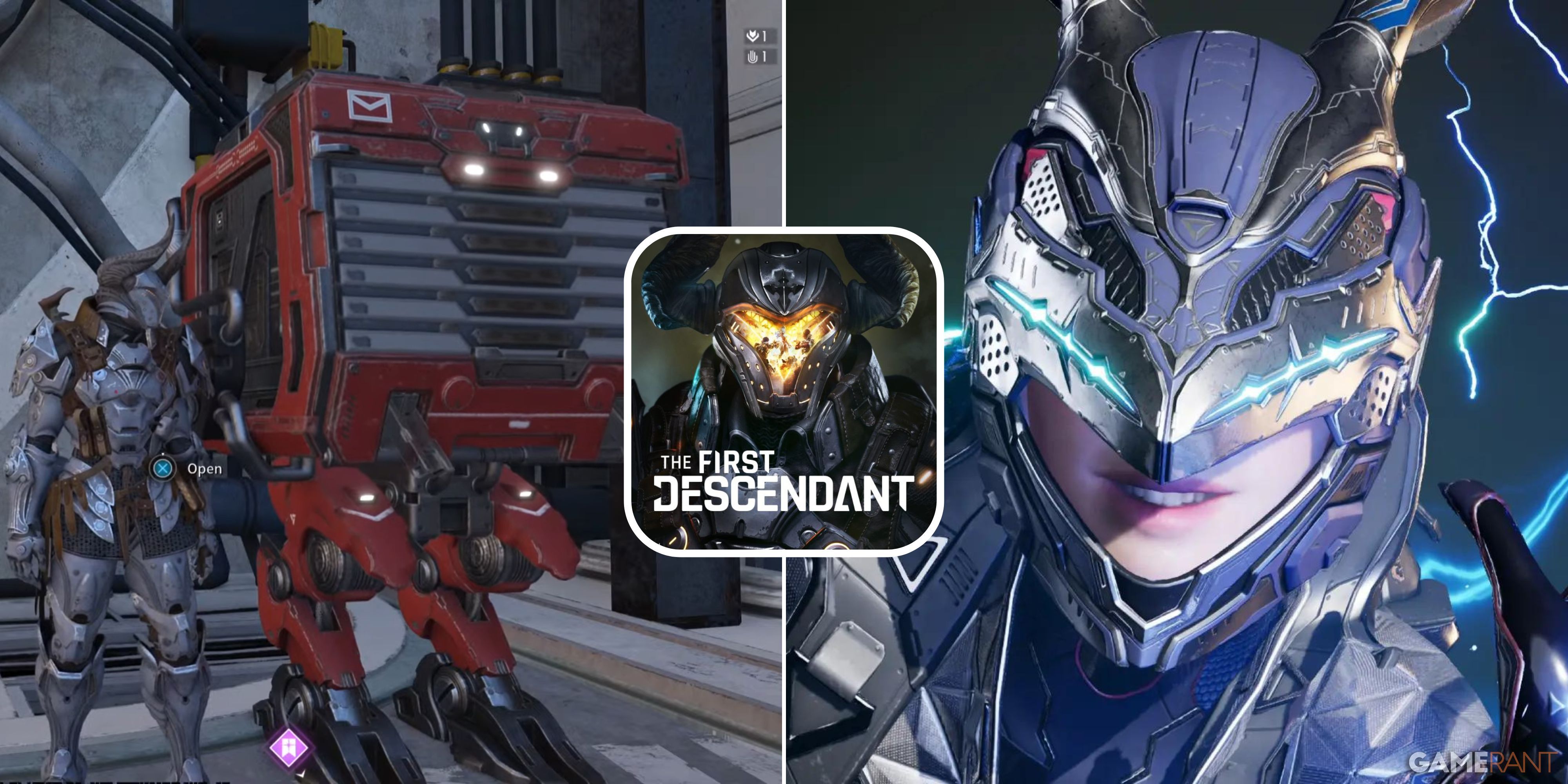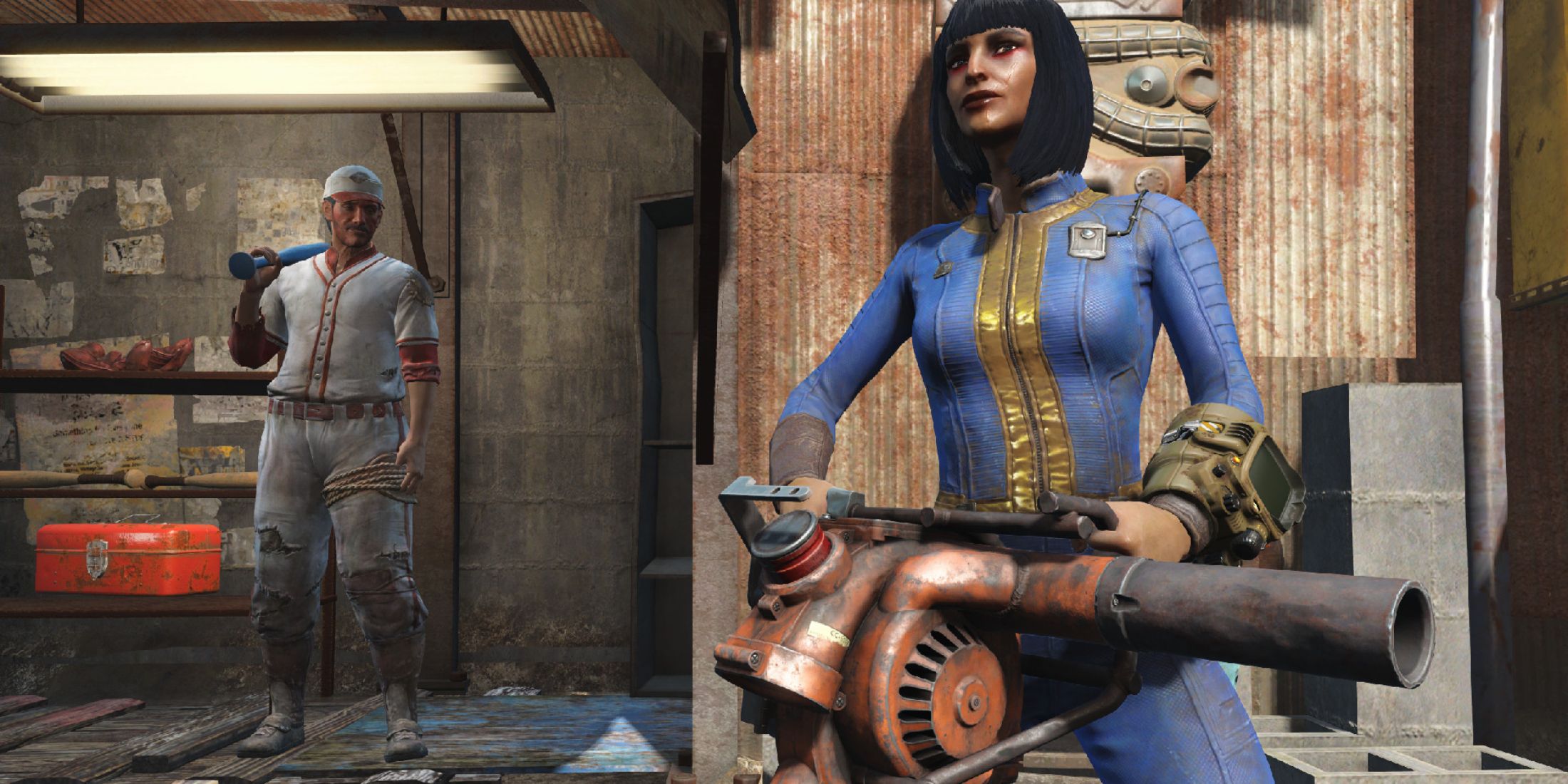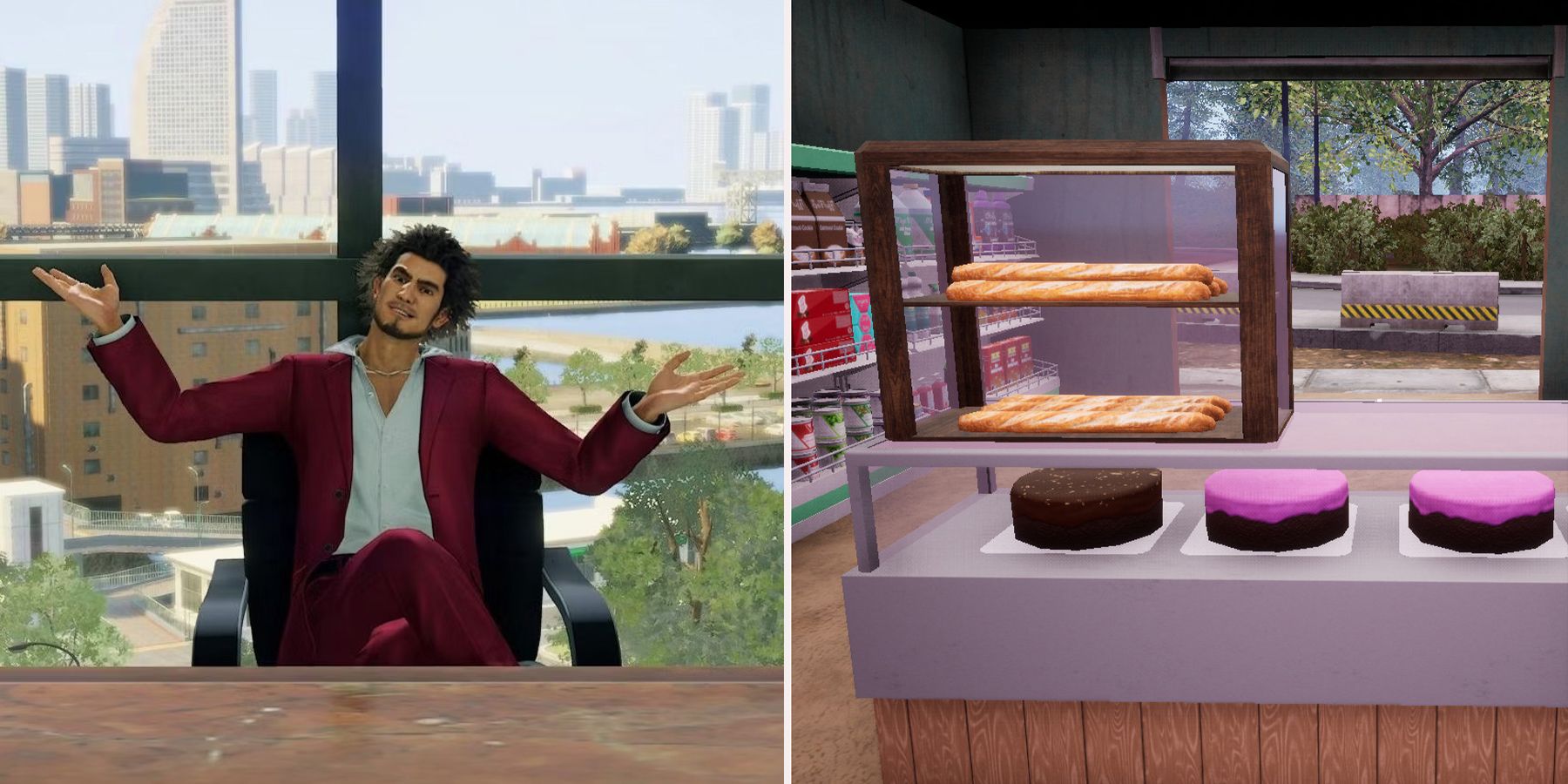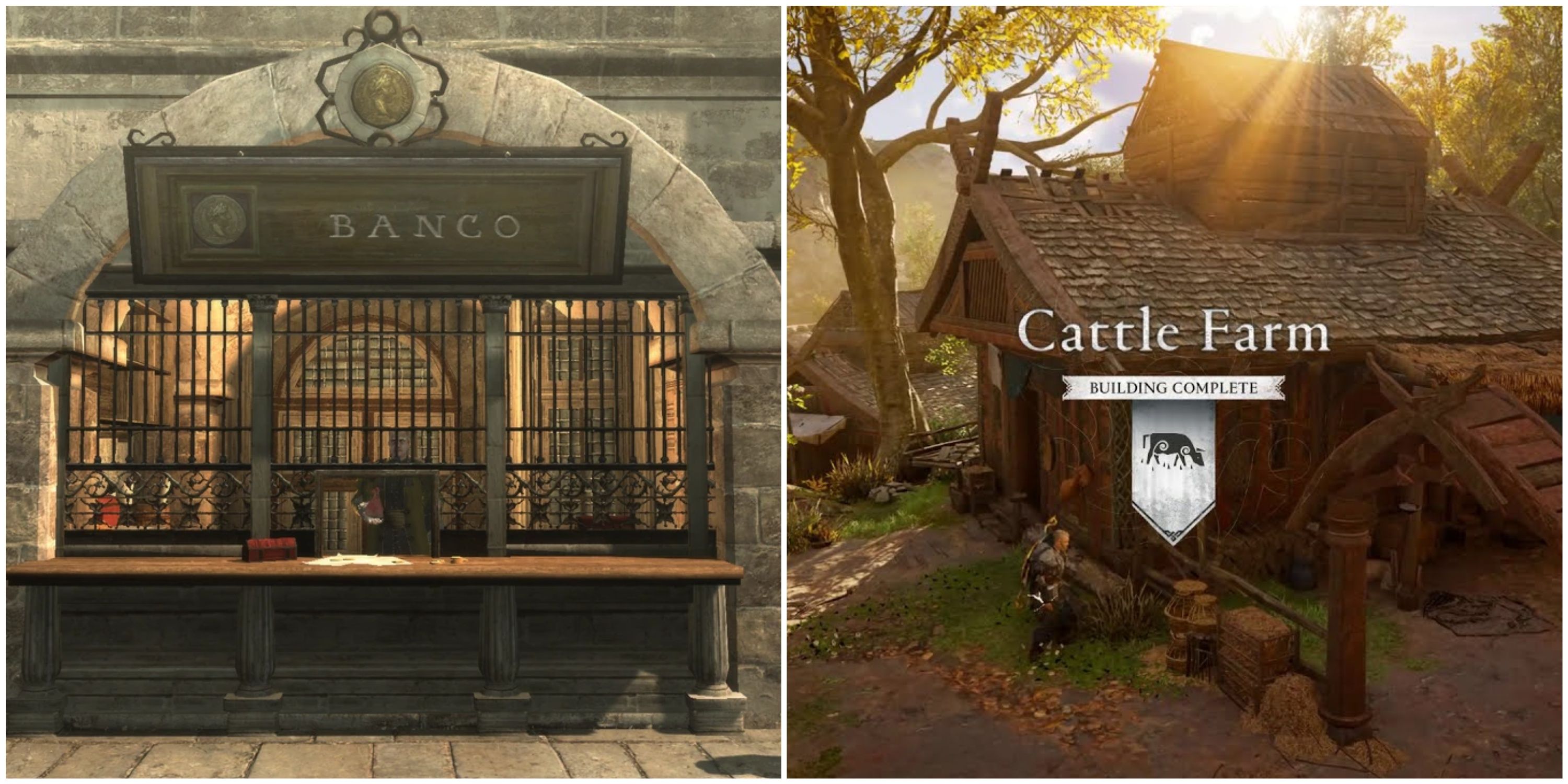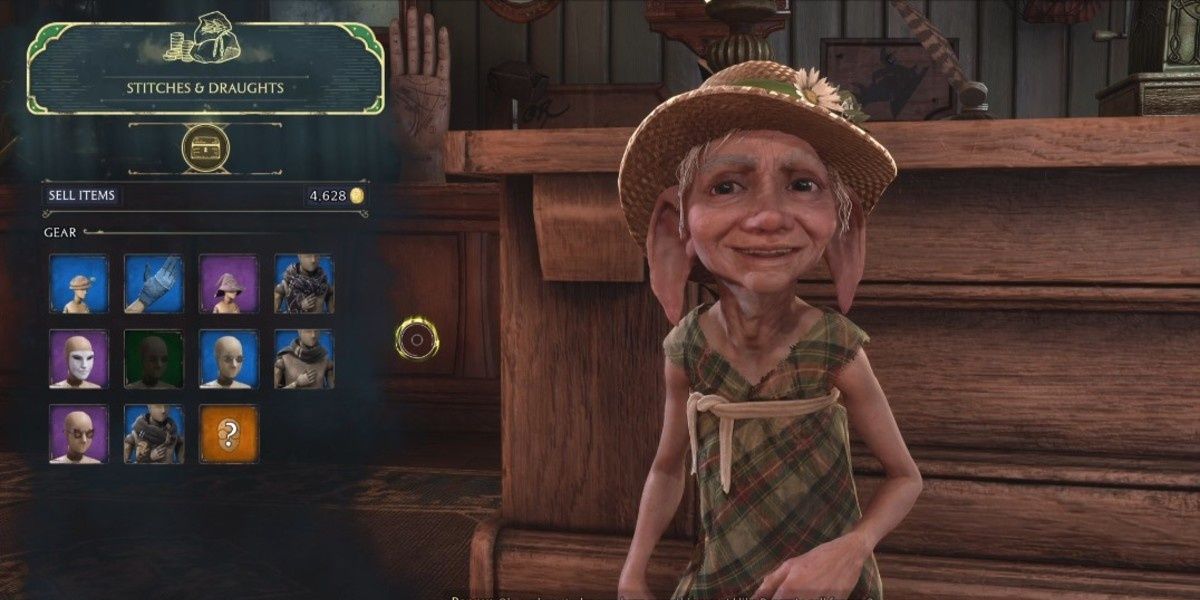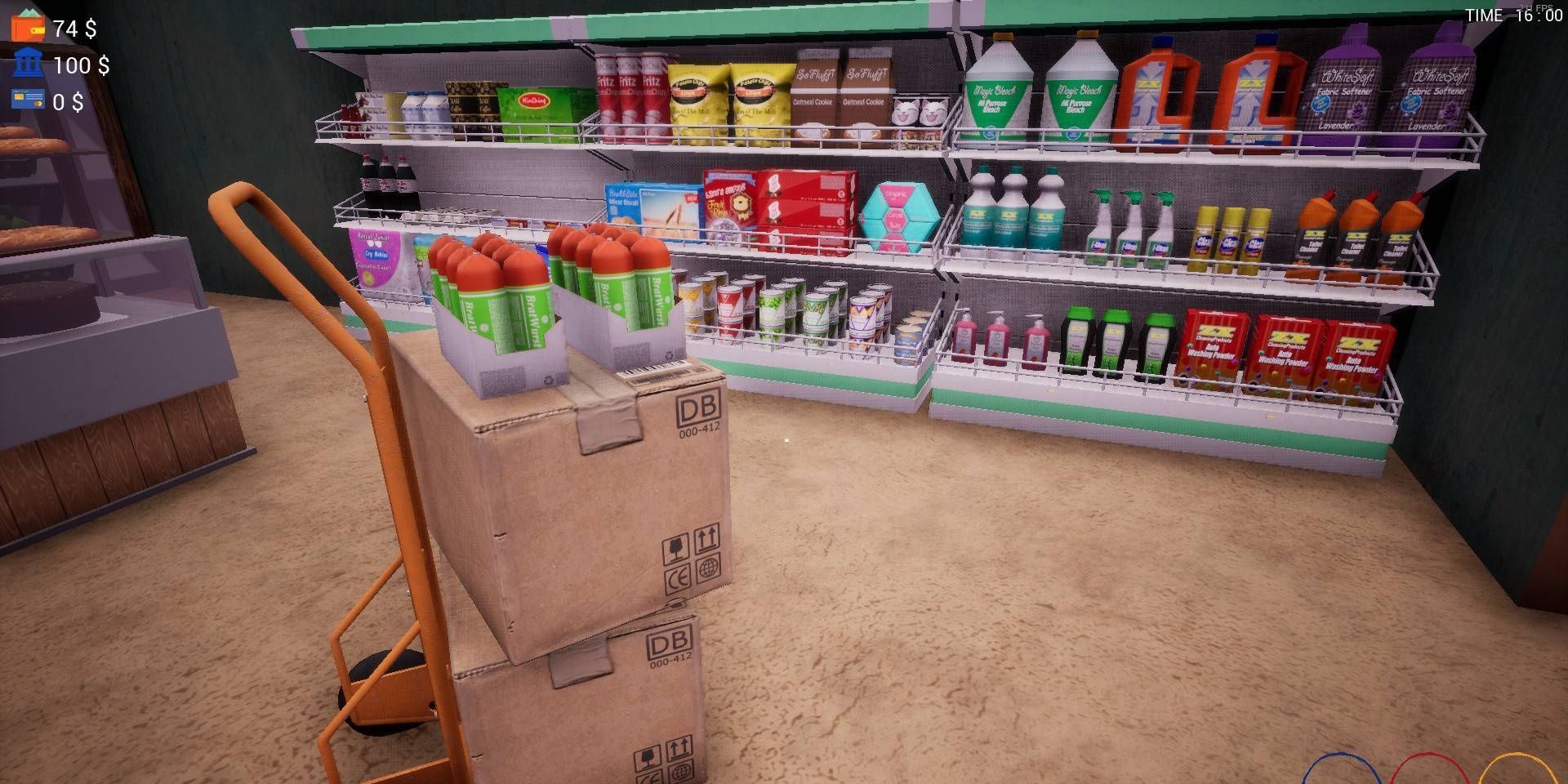When people think of sandbox games, they picture open-world exploration. The point is to roam around and seek adventure. The enjoyment comes through various quests, dungeons, and challenges. There to prepare players for these trials are specialty shops. Here, the heroes can buy equipment and other useful items. However, it's also an area where some sandbox games throw a curve ball.
A number of titles in this genre let players open their own shop. The circumstances vary for these establishments. Depending on the genre, their mechanics may be entirely different. That said, they all help players put down roots and feel more connected to the world as a result.
4 The Assassin's Creed Series
Starting in the second entry, Assassin's Creed attempts to invest players deeper in each historical period. One avenue is renovating venues. In the Italian Renaissance entries, protagonist Ezio can invest in various properties to open shops. These obviously have items to buy, but their main draw is profit. A cut of their proceeds goes into his bank account. This breaks the in-game economy, as Ezio soon winds up richer than a Medici. That's why subsequent entries dial back the benefits.
Players can still invest money in shops at their home base. Examples include the Davenport Homestead in Assassin's Creed 3, the Great Inagua hideout in Black Flag, and Ravensthorpe in Valhalla. These downplay or outright eliminate players' cut of the take. Nevertheless, they remain a convenient source of items, many of them rare. Granted, running a shop isn't what one would picture when thinking of assassins, but that's never stopped this series before.
3 Hogwarts Legacy
For aspiring witches and wizards, the bustling village of Hogsmeade has all the shops they could possibly need. What Harry Potter fans may not expect, though, is their own venue. Hogwarts Legacy features a side quest involving Penny the house-elf. Standing outside an abandoned property, she informs players that her owner will sell the property for 1,500 galleons. It seems like a simple transaction.
Sadly, fans are in for a rude awakening. They must then navigate a cryptic dungeon with mind-bending puzzles, shifting architecture, and an unhinged poltergeist. On the upside, the ordeal ends with players getting to name and customize their store, which provides a 10% bonus to any gear sold. What a fitting end to one of Hogwarts Legacy's most involved side quests. Unfortunately, it's quest-exclusive to PlayStation owners. That's a shame, as everyone deserves a shot at wizarding entrepreneurship.
2 The Yakuza Series
The Yakuza series may be about criminals, but that doesn't mean the characters can't try their hands at legitimate businesses. A few entries let players operate a shop or other branch of the service industry. A notable example is Yakuza 0. Here, both protagonists get in on the action. Kazuma Kiryu runs a real estate firm: scouting properties, buying them, and taking a share of the income. Meanwhile, Goro Majima gets in on the new trend of cabaret clubs. He recruits hostesses, customizes their looks, and assigns them to customers based on specialty. These antics don't stop at the '80s prequel.
Yakuza: Like a Dragon (or Yakuza 7) brings business management into the modern day. New hero Ichiban Kasuga turns a humble restaurant into a massive holdings company. The process once again comes down to buying properties, but he also renovates them and hires managers for peak efficiency. In addition, he must partake in shareholder meetings. If he performs well and climbs the business ladder, then the money comes rolling in.
Needless to say, these are fairly elaborate for minigames. They require time and judgment on the player's part, but the rewards are worth it. Plus, a prolific employee in both games is a chicken. It's nice to know that the trademark Yakuza weirdness is alive and well.
1 The Trader Life Simulator Series
Like many indie titles, the Trader Life Simulator games derive addictive gameplay from the mundane. Both entries give players a town to explore. They have a wealth of shops to fulfill virtually every need. The most important of these needs is food, as players need sustenance to survive.
How fitting that food forms the main attraction: building one's supermarket. Players design this structure from the ground up. Having the right walls and furniture can give it an inviting atmosphere to draw in customers. Once they're reeled in, would-be managers can sell them all sorts of products. The selection goes beyond groceries, as the store can also hold clothing, electronics, and housewares. In a changing market, players must decide what to focus on and do their best to meet people's needs. They can't go too crazy, though, for risk of going bankrupt. How will they get food, then?

